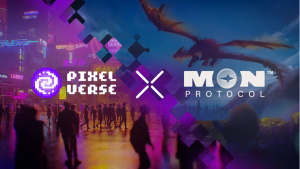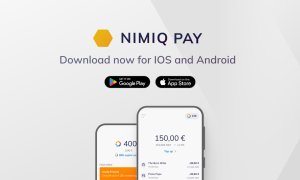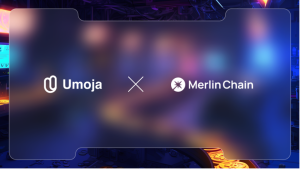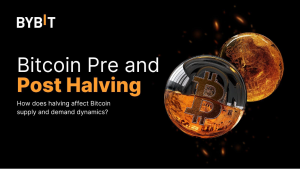Anonymous liquidity + decentralized currency = complete independence. Disruptive or innovative?
Regulatory attention surrounding the provision of dark liquidity by banks and liquidity providers in the interbank sector to the commercial realms of proprietary trading companies which use algorithmic automated execution to get in or out of trades quicker than counterparts has been a moot point over the last 2 years. On one hand, Australia recognizes […]

Regulatory attention surrounding the provision of dark liquidity by banks and liquidity providers in the interbank sector to the commercial realms of proprietary trading companies which use algorithmic automated execution to get in or out of trades quicker than counterparts has been a moot point over the last 2 years.
On one hand, Australia recognizes dark liquidity, commonly referred to as ‘dark pools’ as part of the financial landscape, the island nation’s strong economic base and richness in minerals having made it a very important center for commodities trading, and its financial regulations overseen by ASIC requiring companies to meet some of the highest criteria in the world.
However dark liquidity, which by definition is a private forum for trading secuities in which the trades remain confidential and outside of the purview of the general investing public, has remained very much legitimate.
The European Commission takes a dim view of dark pools, however UBS, a Swiss bank, operates the second largest dark pool in the US.
America’s institutional and large proprietary trading industry, largely centered in Chicago, is so established and well organized that dark liquidity has become a major component, however today, an advancement of the technological kind has headed onto the scene.
Bitcoin exchange Kraken has become the first and only exchange to offer clients Ether (ETH) Dark Pool trading, making the virtual currency not only completely independent of exchanges and central banks worldwide, but also the trading of the currency anonymous.
Back in the days of the initial foray into the market made by Bitcoin-related enterprises and marketplaces, anonymity had gained something of a reputation as a taboo subject.
The introduction of Kraken’s Ether Dark Pool is parallel to the rise in popularity of ether, according to Kraken.
Kraken estimates that ether is the second most valuable form of cryptocurrency behind only bitcoin (XBT), with a current market capitalization of over $700 million. Since the beginning of 2016, ether’s value has risen approximately ten times.
While Kraken has offered dark pool trading for bitcoin since June last year, CEO Jesse Powell said now was the perfect time to add an Ether Dark Pool to Kraken’s leading range of services for digital asset traders.
“Kraken is proud to be the first exchange to provide clients with a Dark Pool for ether, a strategic option for professional traders. This year, trading volume for ether has dramatically increased on Kraken’s exchange, and we developed the Ether Dark Pool to bridge the gap between our lit order books and over-the-counter desk,” said Mr. Powell.
“Dark Pool trading allows for orders to be placed out of sight so that traders can make large buy or sell orders (minimum of 50 bitcoin or 2,500 ether) without revealing their sentiment to other traders. Advantages include reduced market impact and better price for large blocks,” Mr. Powell added in a commercial statement.
Kraken clients will now have access to 6 ether dark pool currency pairs, with the option to exchange ether for bitcoin (ETH/XBT.d), euro (ETH/EUR.d), United States dollar (ETH/USD.d), Canadian dollar (ETH/CAD.d), pound sterling (ETH/GBP.d), and Japanese yen (ETH/JPY.d). As with other Kraken dark pools, the Ether Dark Pool trading fees range from 0.20% to 0.36%, depending on trade volume.
Separately, today Kraken announced major enhancements to their industry leading Margin Trading program, with increased leverage for ETH/XBT (up from 2.5x to 4x) and the addition of support to three pairs: ETH/EUR, XBT/USD and ETH/USD, all with up to 3x leverage. Ether will also become a margin currency, meaning that now a client’s ETH balance can be used (in addition to XBT, EUR, and USD) as collateral for the advanced (borrowed) funds tied to a leveraged margin trade. Margin trading remains unavailable to US residents at this time.
Mr. Powell added, “The details get technical but there are two important takeaways when it comes to dark pool and margin trading. If traders are looking to move large sizes without affecting the market, they trade dark on Kraken. If traders want to keep fewer assets on account and they want less exposure to funding delays, they trade with margin on Kraken. These services together with our OTC desk reflect the growing professionalism of our client base and our exchange.”
The significant additions of Ether Dark Pool trading and enhancements to Kraken’s Margin Trading Program come one week after Kraken’s new Position Settlement feature went live on May 4. Position Settlement allows clients to return the advanced (borrowed) funds tied to a leveraged margin trade and close a position by sourcing the funds from their own account balance. Previously only available on Kraken manually, Position Settlement is now a free, automated service which eliminates the impact of funding latency on trading.









